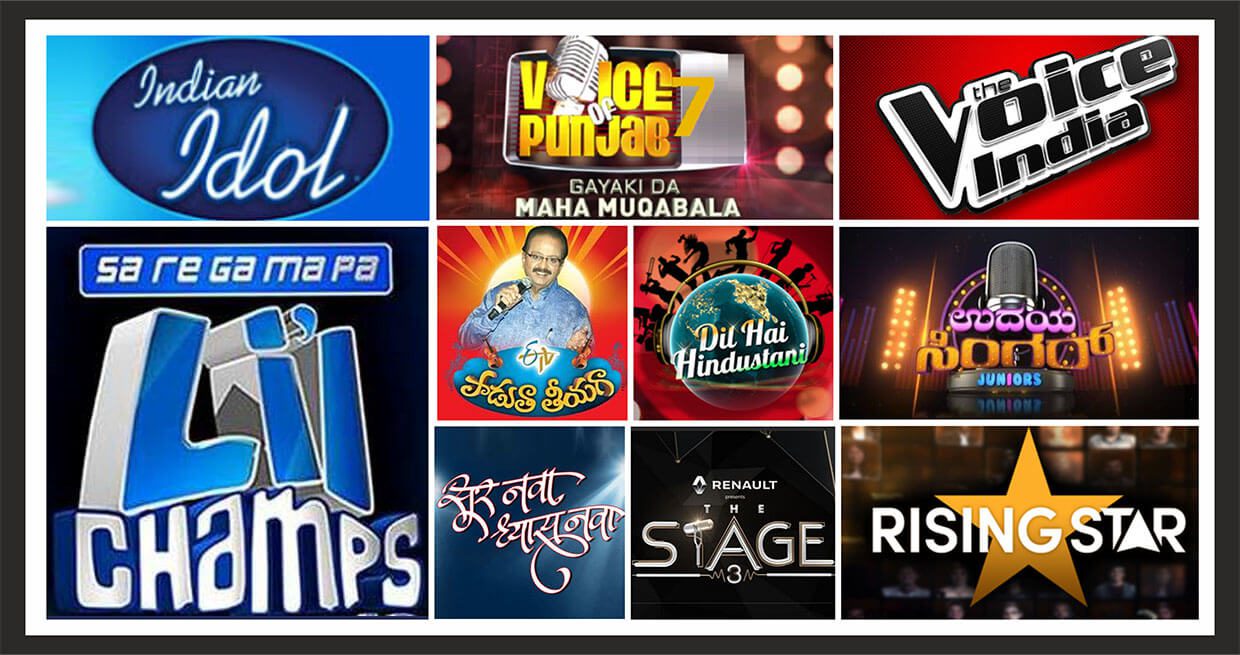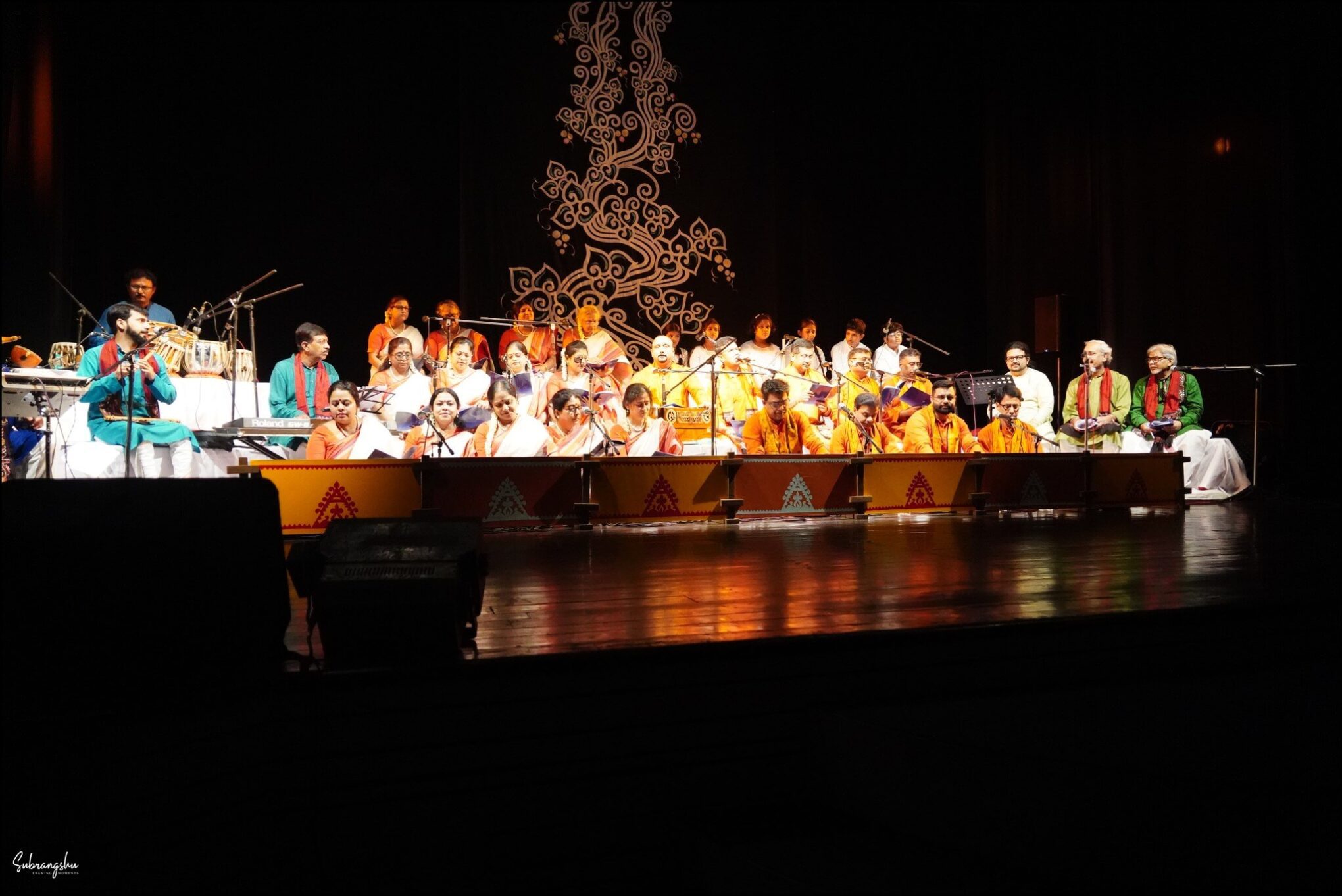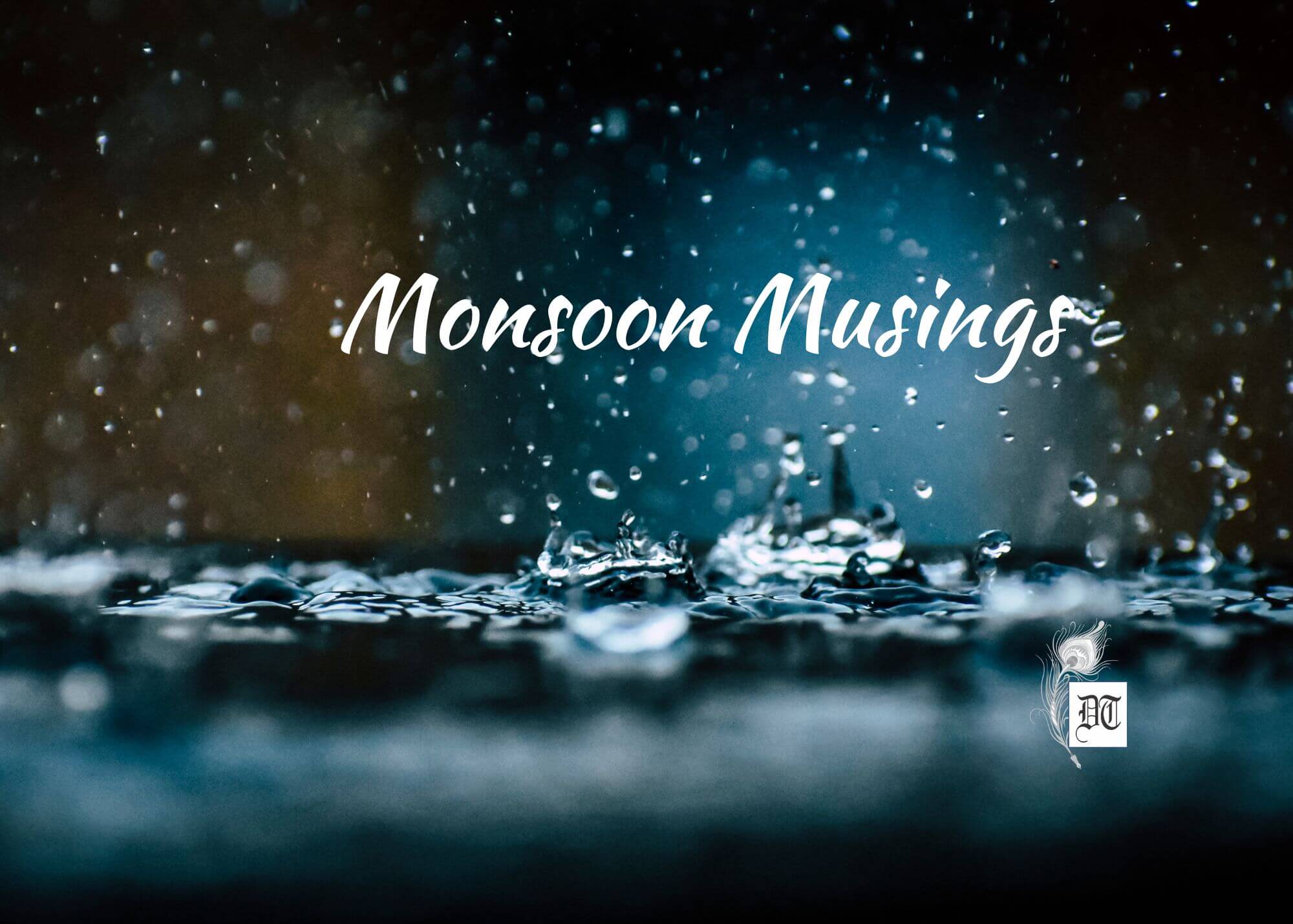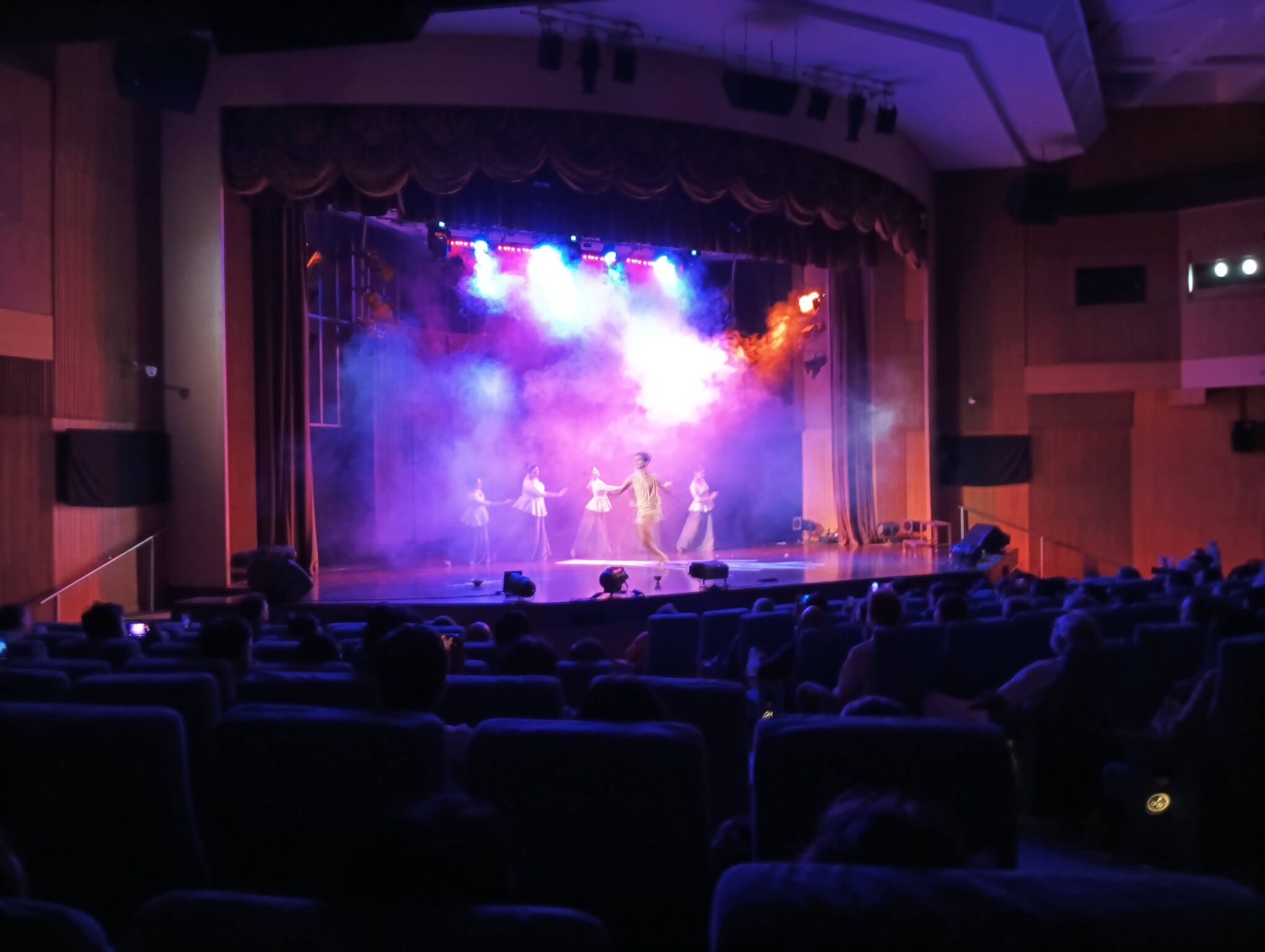Ruchira examines the music reality shows flooding the T.V. channels. The reality check is very different. An exclusive for Different Truths.
 “Music is the speech of the soul,” goes an old adage. Our India with an ever-spiraling population and multidimensional cultural heritage has a splendid repertoire of music. From hardcore classical to semi- classical, folk to Baul, Sufi down to ethnic Rap, Indipop …the list is endless!
“Music is the speech of the soul,” goes an old adage. Our India with an ever-spiraling population and multidimensional cultural heritage has a splendid repertoire of music. From hardcore classical to semi- classical, folk to Baul, Sufi down to ethnic Rap, Indipop …the list is endless!
All will agree that singing requires honing of talent followed by recognition (read publicity) for ordinary individuals to emerge as professionals. India abounds in talent and potential in almost every nook corner. This factor led to the mushrooming of musical reality/ live shows on the small screen. The advent of satellite linking coupled with Internet further boosted this phenomenon.
From the 90’s and post the turn of century, Indian television witnessed a mega array of live musical competitions.
From the 90’s and post the turn of century, Indian television witnessed a mega array of live musical competitions. Antakshari which made its debut in 1993/4 (ended in 2005) on Zee TV was co-hosted by the performing artist duo Annu Kapur, Pallavi Joshi besides many other show biz personalities.
Another iconic musical contest Sa re Ga Ma (now Sa Re Ga Ma Pa) first aired on Zee TV, in 1995, and hosted by singing star Sonu Nigam (followed by Bangash Bros & Shaan). It is the oldest (still running) singing competition in India. Moreover, its numerous avatars have surfaced in Indian vernaculars.
Three years ago, Rising Star made its appearance on Colors TV. It was broadcast live, throughout, the “audience”’ voted for their favourite singers from the confines of their home. Thus, live audience voting was introduced in India’s reality shows.
Three years ago, Rising Star made its appearance on Colors TV. It was broadcast live, throughout, the “audience”’ voted for their favourite singers from the confines of their home. Thus, live audience voting was introduced in India’s reality shows. This was the USP. Its judges and anchors comprised luminaries like Monali Thakur, Meiyang Chang, Diljit Dosanjh among many.
Indian Idol, a Sony channel presentation was quite a ‘rage’ among teeny weenie “musical brats” countrywide, during its heydays in the 2004 & 2012 period. Its objective is to spot budding crooners and help them carve niches in the domain of music.
Reality shows have catapulted many talented individuals into the limelight, followed by oodles of fame and recognition. Shreya Ghoshal and Aneek Dhar figure among them, as does Monali Thakur.
Reality shows have catapulted many talented individuals into the limelight, followed by oodles of fame and recognition. Shreya Ghoshal and Aneek Dhar figure among them, as does Monali Thakur. The former duo won fame via Sa Re Ga Ma Pa, while Monali has Indian Idol to thank for her success.
It boils down to this: Musical Reality Television shows are platforms for aspiring vocalists to flex their vocal cords and throat muscles to showcase their latent abilities. However, some music experts raise questions regarding the efficacy and utility of such contests on electronic media. A prime question doing the rounds is: Akin to athletics and sports, why can’t there be gender based musical shows i.e., men and women only contests, instead of the unisex format prevalent now?
However, some music experts raise questions regarding the efficacy and utility of such contests on electronic media.
Says Prithvi Debnath, a Dubai-based doctor and music aficionado, “It is foolish to equate sports and an abstract art like music. That’s because most of the sports require a good deal of stamina, a certain degree of physicality and body contact is involved. In these aspects certain limitations and handicap exist adds for the females. He adds, “As far as I remember at school and college levels, singing competitions are always held separately for girls and boys, they are never mixed. It is mixed only in T.V. shows, which I feel is due to factors like viewership, finances, et al.”
Likewise, Hina Arsalan, a homemaker and avid watcher of such music programmes says, “If you introduce two different sections for the sexes not only will it create confusion but in a country like India such shows will drag on endlessly before a winner emerges. Hurdles might arise in terms of budget, time slot and viewers’ interests. To put it in a nutshell this arrangement is because of convenience and finance. If you combine both sexes the risk gets neutralised and the law of average sets in…”
Where singing is concerned how does it matter if the competition is separate or mixed? Music sees no boundaries. It is the language of the soul. Soul has no sex.
Alakananda Pramanik, a Kolkata-based software professional scoffs at the comparison. Says she, “Our body structure, anatomy, strength, everything is  different. You can’t be having a man and a woman wrestling in an arena…. Where singing is concerned how does it matter if the competition is separate or mixed? Music sees no boundaries. It is the language of the soul. Soul has no sex. Music is pure rhythm and melody. Music aims to connect not differentiate.”
different. You can’t be having a man and a woman wrestling in an arena…. Where singing is concerned how does it matter if the competition is separate or mixed? Music sees no boundaries. It is the language of the soul. Soul has no sex. Music is pure rhythm and melody. Music aims to connect not differentiate.”
The basic characteristics of male and female voices are starkly different. If judged in the same event would it be flawless? Debnath says, “If you are comparing, say Lata and Kishore Kumar, well I would say they are indeed. No two singers can be judged mechanically. Singing is an expression of art. It can’t and shouldn’t be judged. However, as humans are competitive by nature, they’ve introduced such contests. I have been a judge at some local events. On such occasions, we, the judges, adhered to certain parameters: whether the singing is in tune or not, is the rhythm broken or not, does the voice break at the top of the tones or not.” Aren’t such shows a waste of talent, depression-inducing, and the judgement faulty?
“I do not see any waste of talent, faulty judgement, mental depression, etc. On the contrary, the contestants, who were otherwise unknown singers get an opportunity to perform before a wider audience, gain confidence….”
Let’s hear what Pramanik has to say: “I do not see any waste of talent, faulty judgement, mental depression, etc. On the contrary, the contestants, who were otherwise unknown singers get an opportunity to perform before a wider audience, gain confidence…. In a way they get proper coaching and feedback from the judges / mentors, which help them to improve. They are getting so much visibility and exposure. Go, check and you will find even the runners-up (not the winners) getting offers to perform. Why should the judgement be faulty? Music competitions are based on fundamentals, e.g., sur, taal, pronunciation, presentation and voice modulation, not physique or looks…”
In the long run, boys will sing for male actors while girls will sing for actresses. What is the point of judging their performance together? To this Hina’s spouse, Anam, a journo replies, “Music profession is not an organised sector. There is no guarantee that if you win a particular contest you get a job as an artiste somewhere. He further adds, “These results don’t confer upon you a degree or qualification, which is taken into consideration while selecting a professional artist. TV shows can’t /shouldn’t be correlated with music related jobs as these mainly project a person’s singing before a vast spectrum of audience.”
Alakananda, on her part feels, “Signing in as boys and girls for such contests is mainly to arrange for their accommodation, security, et al, since basic requirements differ for the two sexes.”
Dr Lipika Sarkar, a great fan of such shows and a singer herself, has another idea. “Why don’t the organisers get both male and female participants to croon the same number? Since their voices will be distinctly different, individual intricacies and nuances will be as clear as daylight.”
Dr Lipika Sarkar, a great fan of such shows and a singer herself, has another idea. “Why don’t the organisers get both male and female participants to croon the same number? Since their voices will be distinctly different, individual intricacies and nuances will be as clear as daylight,” she opines.
While the controversy rages on I look around for a sane voice, a balanced opinion. A workable solution rather than emotion. I stumble upon Molly Mitra, an upcoming classical singer, based in Lucknow. She gives a smart reply, “Why this useless bickering over the winners’ number and sex? Select 1-2-3 outstanding male singers and 1-2-3 female singers. They can playback for any number of actors/actresses or churn out duets…no broken bones.”
How far are the prizes and awards justified? “What an absurd question,” remarks Malay Bose, who works as a video editor in private television channel, “The type of awards and the budget amount earmarked for them depends on the media/ broadcast houses, and the sponsors they can rope in for each show. If they manage to get hold of hi-fi sponsors, they give away luxury cars and exotic holiday packages as prizes. Whereas low profile production houses handout cash awards, domestic tour packages, et al.”
Dilnaz (name changed), who had once participated in The Indian Idol, reveals, “Behind the scenes, the participants are given a shabby treatment, even foul mouthed by the staffers as well as by organisers…”
So much for the glamour and glitz, but the reality is indeed sordid. Dilnaz (name changed), who had once participated in The Indian Idol, reveals, “Behind the scenes, the participants are given a shabby treatment, even foul mouthed by the staffers as well as by organisers. Often spats ensue between the participants themselves.” Dilnaz agrees with Anam regarding the career prospects of the participants. She vividly recalls the mad frenzy, which had gripped the nation prior to the finale of the Indian Idol. The finalists Amit Sana and Abhijeet Samant were virtually being mobbed. She asks, “A decade later, where are they? Sana disappeared into thin air. Abhijeet Sawant, the winner, reportedly joined the student-wing of a regional political party.”
Photo from the Internet






 By
By

